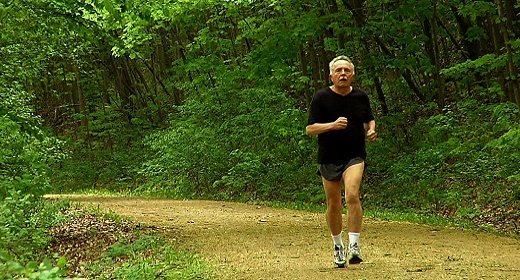by Dr. Andrew Weil: I’ve noticed that some people seem to age more quickly than others?

How is it that some 70-year-olds run marathons while others can hardly walk? Do genes explain the difference?
You raise an important issue about which we have more questions than answers. I can tell you that studies of twins have shown that genes influence only about 25 percent of the variation in human longevity. Beyond that, we have to look at many other factors including “gerontogens” – substances that can accelerate aging. These include the mix of some 4,000 toxic chemicals in tobacco smoke, arsenic in groundwater, benzene in industrial emissions, ultraviolet radiation from the sun, as well as the health effects of obesity, nutrition, and psychological stress.
One approach to the study of aging is to focus on the brain by measuring levels of the beta-amyloid protein linked to Alzheimer’s disease, but that would tell us only some of what’s going on in the brain, and nothing about what’s happening elsewhere in the body.
Another clue could come from the length of telomeres, repeating DNA sequences at the ends of chromosomes. Intact telomeres prevent chromosomes from fusing with one another or rearranging – undesirable changes that can lead to cancer and other life-threatening diseases. Research has shown that as cells replicate and age, telomeres get shorter and shorter and that when they finally disappear, cells can no longer replicate. Some experts suggest that the length of telomeres may be a marker for biological aging. The shorter your telomeres, the “older” you are, regardless of your chronological age.
In one study involving the effect of green tea on aging, investigators reported that the average difference in telomere length corresponded to “approximately a difference of five years of life,” which suggests that people who drink green tea regularly may be younger biologically than those who don’t. The researchers suggested that the “antioxidative properties of tea and its constituent nutrients may protect telomeres from oxidative damage in the normal aging process.”
Other researchers are looking at senescent cells – those that stop dividing and accumulate with age. These cells contain 10 times the normal level of a protein called p16. The investigators developed a strain of mice that produce another protein that glows in the presence of p16. With exposure to gerontogens, mice show higher levels of p16 at younger ages. A similar p16 test could measure biological age in humans.
Another clue to biological aging is the strength of your handgrip. Research has shown that low grip strength is associated with a greater likelihood of premature death, disability and an increased risk of complications or prolonged length of stay after hospitalization or surgery. A study published in 2014 showed that in general handgrip strength differed with educational levels: both men and women who had more education had stronger grips at an older age than those who had not graduated from high school.



















































